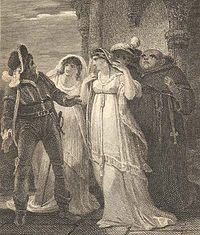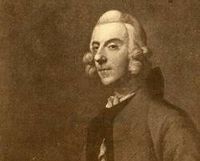Annotation:Lowland Lads (The)
Back to Lowland Lads (The)
LOWLAND LADS, THE. AKA – "Lowland lads think they are fine." AKA and see "Ah! Sure Such a Pair," "Highland Laddie (7)." "New Highland Laddie (2)." English, Jig or Air. D Major. Standard tuning (fiddle). AABB. The melody appears in the music manuscript copybook of Henry Livingston, Jr. Livingston purchased the estate of Locust Grove, Poughkeepsie, New York, in 1771 at the age of 23. In 1775 he was a Major in the 3rd New York Regiment, which participated in Montgomery's invasion of Canada in a failed attempt to wrest Quèbec from British control. An important land-owner in the Hudson Valley, and a member of the powerful Livingston family, Henry was also a surveyor and real estate speculator, an illustrator and map-maker, and a Justice of the Peace for Dutchess County. He was also a poet and musician, and presumably a dancer, as he was elected a Manager for the New York Assembly's dancing season of 1774–1775, along with his 3rd cousin, John Jay, later U.S. Chief Justice of Governor of New York.

The melody was employed as an air for the song "Ah, sure a pair was never seen" from Richard Sheridan's (1751–1816) comic opera The Duenna (1775), staged at Drury Lane and Covent Garden, London. Livingston must have much admired the work, for he included a number of songs from the opera in his copybook. The music was composed by a father and son, both named Thomas Linley, although the opera is chiefly remembered for its libretto, the work of Sheridan. In fact, the libretto was well-enough thought of to form the basis of an opera by Roberto Gerhard, and for Prokofiev's Betrothal in a Monastery. Linley the son was a friend of the young Mozart, while the elder Linely was Sheridan's father-in-law.

The song predates The Duenna, however, with music credited to Thomas Arne (1710–1778), with words by Allan Ramsay, printed in the Gentleman's Magazine (vol. XX, p. 325, 1750) and numerous other works. It is said to have been composed by Arne's son Michael about 1750, when he was aged eleven. It takes its name from the following lyric:
The Lowland lads think they are fine,
But O they're vain and idly gawdy.
How much unlike that graceful mien
And manly looks of my Highland laddie!
Chorus
O my bonny Highland laddie!
My handsome, smiling Highland laddie!
May Heav'n still guard and love reward
The Lowland lass and her Highland laddie!
The melody appears as an air in James Manson's Hamilton's Universal Tune-Book, under the title "Highland Laddie (7)."
Source for notated version:
Printed sources: Manson (Hamilton's Universal Tune-Book, vol. 2), 1846; p. 104 (as "Highland Laddie").
Recorded sources: Parlophone GEP 8890 (45 RPM), "Jimmy Shand and His Band" (1963).
